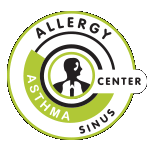Nasal Sprays
The Benefits and Risks of Nasal Antihistamines
Nasal sprays are commonly used to treat sinus and allergy issues, and they generally fall into one of three categories.
The most commonly used nasal spray to treat nasal allergies is the intranasal steroid. It works over several days to decrease swelling of the nasal/sinus tissue and mucous production, but it must be used every day to really work. Examples of intranasal steroid sprays include: Flonase, Nasacort AQ, Qnasl and Nasonex.
Nasal antihistamines work in a different way to decrease swelling and mucous production. Symptomatic improvement can occur within about 30 minutes, and this class of medications can be used as needed in many cases. Examples include: Patanase and azelastine.




